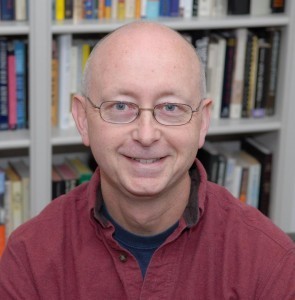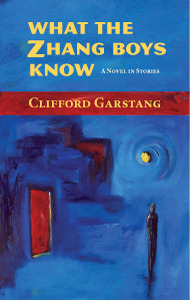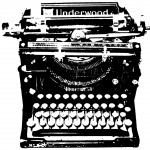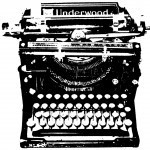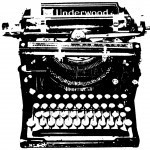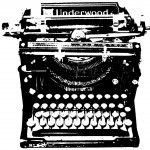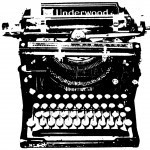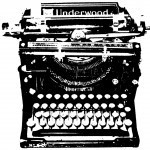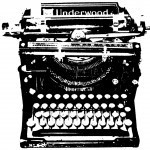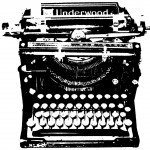Midge Raymond's Blog, page 31
March 19, 2013
Q&A with Clifford Garstang, author of WHAT THE ZHANG BOYS KNOW…
After reading Clifford Garstang’s beautiful story collection What the Zhang Boys Know, I had to learn more about it … and to my delight, Cliff was willing to answer a few questions. I always love to know what goes on “behind the scenes,” especially when I’m so strongly drawn to the writing, and I hope all you writers out there will enjoy learning about Cliff’s process as well.
Here’s a little more about Cliff: Clifford Garstang is the author of the prize-winning short story collection In an Uncharted Country (Press 53, 2009) and the novel in stories What the Zhang Boys Know (Press 53, 2012). About his first book, Tim O’Brien, author of The Things they Carried, said, “In an Uncharted Country is an impeccably written, sumptuously imagined, and completely enchanting book of stories. . .” John Casey, author of Spartina, called What the Zhang Boys Know “a wonderful and haunting book.”
Garstang’s work has appeared in Bellevue Literary Review, Blackbird, Cream City Review, Los Angeles Review, Shenandoah, Tampa Review, Virginia Quarterly Review, and elsewhere, and has received Distinguished Mention in the Best American Series. He won the 2006 Confluence Fiction Prize and the 2007 GSU Review Fiction Prize and has been awarded fellowships by the Virginia Center for the Creative Arts and the Sewanee Writers’ Conference. He holds an MFA in Fiction from Queens University of Charlotte and is the co-founder and editor of Prime Number Magazine. He is also the author of the popular literary blog Perpetual Folly.
Garstang teaches creative writing at Writers.com and elsewhere. He currently lives in the Shenandoah Valley of Virginia.
Q: What the Zhang Boys Know is “a novel in stories”—and the stories are indeed seamlessly woven together, even though most of them were published as stand-alone pieces in literary magazines. Did you begin with interconnected stories in mind, or did the collection become linked after you’d begun writing individual stories?
A: Unlike my first book, In an Uncharted Country, which just grew as I kept writing stories and borrowing settings and characters from the finished stories, this one was conceived from the beginning as a whole, complete with the overall narrative that ties the independent stories together. The first story in the book, “Nanking Mansion,” which I also wrote first, serves as something of an outline for the whole. It introduces most of the characters—indeed, early drafts included all of them—and also sets out the themes that the book seeks to explore.
Q: Your collection features such a wide range of voices—you write from the point of view of characters male and female, gay and straight, black and Chinese, young and old. Do you have any special way, as a writer, of immersing yourself so completely in these characters?
A: It’s just a matter of authorial empathy, I think. Doing all those voices is part of the pleasure of writing short stories, in my opinion. You toil on a novel for many years, often mired in a single voice. I know! I’ve done that. But being able to shift gears, so to speak, and try on different voices the way you’d try on different clothes, is liberating. As for the “how,” I’m not really sure. Years ago a writing teacher recommended a book by Stanislavsky, the great theater director, called An Actor Prepares. The salient part of the book for writers is a section on finding emotional authenticity by tapping into feelings that the actor shares with the character. I may not have felt the exact same pain that my character feels, or the same love, or the same anxiety, but I have felt pain, love, and anxiety, and so I am free to write about those feelings. With a little research and observation, I think you can make those things come alive for a character who is quite different from yourself. That’s the theory anyway.
Q: While the collection’s anchor is Nanking Mansion, the condominium in which the characters live, many of the stories also take readers to distant places, such as China and Paris. Have you been to these places yourself—and if so, do you find that you get story ideas from traveling, or does the act of writing bring you back to the places you’ve visited?
A: I’ve been to Paris a few times and to China many, many times. I can’t recall having story ideas while traveling, exactly. I think it’s when I sit down to write that the places flood back. For example, as I began this book, I had recently visited Nanjing, China, and had seen the memorial to the victims of the Nanking Massacre. (Nanjing is the modern spelling of Nanking, which means “Southern Capital.”) That was a moving experience, and it occupied my thoughts in the crucial, formative stage of the planning for the book. That gave me the name of the building and also some of the themes that I come back to in several of the stories.
Q: You bookend the collection so beautifully with Zhang Feng-qi—was he (and were his sons, the Zhang boys) always in your mind as the central character to the story? And how did the other inhabitants of Nanking Mansion begin to take shape as characters?
A: Feng-qi came first, simply because I wanted to create a central character who was unfamiliar and so unpredictable. Then came his sons, because I was interested in the diversity of the building specifically and in Washington, D.C., generally, and what better way to show diversity than with biracial children? And of course they were crucial to Feng-qi’s goal, which is to find them a new mother. As for the other inhabitants, they too were manifestations of the diversity of the population. I’ve joked about this, but it’s more or less true that I imagined the doors of the apartments of this building and started opening them one by one in my mind. Every new door revealed a new character, and ultimately a new story for the book.
Q: The same old question I love to ask: What’s your favorite place to write, and what time of day? Do you have a regular writing routine?
A: I have a nice office in a loft at my house. It’s quite spacious, lots of natural light from skylights. My dog has a comfortable bed there, and that’s where I do most of my work. I do escape to coffee shops from time to time just to shake things up a little. And I also try to go to a writing residency once a year to get some really hard, concentrated writing time in when I’m immersed in whatever I’m working on. Much of What the Zhang Boys Know, in fact, was written in first draft in a residency at the Virginia Center for the Creative Arts. But regardless of where I am, my routine is to get to my writing space pretty early in the morning, right after breakfast, and to work until lunch time. After lunch I’ll turn my attention to other things—submissions or teaching preparation or whatever.
Q: What are you working on now—and where can we find some of your recent work?
A: I’ve recently completed a novel set partly in Virginia and partly in South Korea, where I lived years ago as a Peace Corps Volunteer. But now I’m working on a novel set in Singapore, where I lived for almost a decade. Because I’ve been writing longer things for a couple of years, there isn’t a lot in the way of new work available to read, but I do like a story that appeared in Joyland last year, “Cousin Barnaby is Dead.” That’s available here: http://www.joylandmagazine.com/stories/midwest/cousin_barnaby_dead.
Thanks so much for asking all these great questions!

March 18, 2013
Weekly Writing: Bubble gum
So, I learned a few years ago that my dad never chews gum. As in never. I am not sure why I never knew this, but it struck me as interesting, in a family of gum chewers, that he is the lone non-gum person.
Write about bubble gum … from the first time you tried it to whether you still believe it’ll remain in your stomach for seven years if you swallow it. Then go on to write about other kinds of gum. Include everything you can think of in your history and relationship with chewing gum.

March 11, 2013
Weekly Writing: Luck
Write about something you wear for good luck — a certain pair of shoes, a lucky sweater, a pair of earrings. Describe how you adopted the ritual, and then write a scene about a time this good-luck charm helped you.

March 4, 2013
Weekly Writing: Membership
Write about a something in which you’re a member … a club, organization, writing group, etc., including how you came to be a member, how long you’ve been one, and how you like it (or don’t). Then write a scene that depicts one of your recent gatherings.

February 26, 2013
Tips for a great writing session
A few weeks ago, my dear friend Judy Reeves was telling me about one of her amazing workshops, in which they worked in 90-minute intervals, then took a break, and then got back to work, and so on. It sounded so wonderfully efficient and productive — and in fact it was.
Then I came across this New York Times piece on the benefits of taking breaks — and while the article’s main focus is on the benefits of naps and vacations (of which I am also a big fan, though I never seem to take them), it also reveals the benefits of working in 90-minute intervals, which studies have shown lead to maximum productivity. Florida State University’s K. Anders Ericsson has studied elite performers (including musicians, athletes, actors, and chess players) and has learned that they do best when practicing in 90-minute sessions, with breaks in between.
I have noticed, very unscientifically, that when I have more than two hours of writing time, I start to flag as I approach the second hour (I never take breaks because this is, after all, precious writing time). In fact, my waning energy always made me worry that, since that sort of uninterrupted time is such a luxury, I’d never get anything done if I couldn’t use my time well when I have it. But this article offers evidence that we need to apportion our time to our advantage — and include the necessary breaks we often don’t allow ourselves.
So, here’s a call to action for all you writers out there … or rather, here’s several:
Schedule your next writing session at exactly 90 minutes (if you can).
If you’ve got more than 90 minutes of time, take a break … or several.
When you’re feeling uninspired, take a nap — even if it uses up your writing time.
Take a notebook with you on your next vacation, and write for pleasure (not out of guilt or obligation — just jot down anything you’d like, for the fun of it).
I’m looking forward to trying this (especially the napping part). Happy writing!

February 25, 2013
Weekly Writing: Being late
Write about being late.
First, writing about being late for work or an important meeting. Then write about showing up late for an important event, like a wedding or funeral. Finally, write about being late to meet someone, whether for a first date or to pick up your child from school.

February 18, 2013
Weekly Writing: Shelves
Write about a shelf in your closet, or pantry, or library. Describe what is on it in great detail. What do these particular items say about you? How would this shelf have been different five years ago, or ten? How might it look ten years from now, or twenty?

February 11, 2013
Weekly Writing: The last thing
February 4, 2013
Weekly Writing: A sweater
Write about a favorite sweater. Include everything from where you got it, its color and fabric and shape, and why it’s your favorite.

January 28, 2013
Weekly Writing: Staying late
Write about staying late at the office, or staying too late at a party. Let your imagination take this scene wherever it wants to go.


